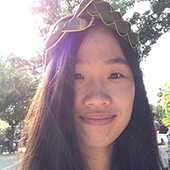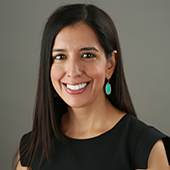Educational Policy and Planning
Department of Educational Leadership and Policy
The Educational Policy and Planning (EPP) program prepares the next generation of leaders and analysts who will significantly and positively change public education. The EPP Master’s in Education program prepares leaders for careers in policy analysis, with a critical focus on anti-racist education policy, equity, and social justice. Students gain a theoretical foundation in policy development, implementation and evaluation, school law, poverty and educational policy, and critical policy analysis. Upon completion, students will be prepared to work in the legislature, public and private research entities, community-based organizations, civil and human rights groups, nonprofits, school districts, state and local government, or consulting agencies.
The multidisciplinary master’s program provides students with both an academic and applied understanding of the public policy process. Coursework includes core classes in foundations of policy analysis, policy implementation, qualitative and quantitative research methods, and policy seminars.
In some cases, students elect to pursue a doctorate in educational policy after completion of their master’s program. Admitted students will have the opportunity to work alongside a professor to pursue research interests.
Classes are typically held on weekdays from 4:00 p.m. to 7:00 p.m.
Program Starts: Fall
Deadline to Apply: December 1
Credit Hours Required: 36
Schedule: Full time or part time permitted per discussion with program head
Program Location: On Campus
GRE Required? No
Program Features
- Cohort model
- Full-time study
- Multidisciplinary
- Policy/research internship
Application Requirements
All graduate students are required to apply through the Graduate School website. We strongly encourage you to start this process well in advance of the deadline to allow us time to process your information. Learn more on our How to Apply page.
The GRE is no longer required for those applying for admission to the EPP M.Ed. program. If applicants choose to submit GRE scores, they will not be reviewed or considered by the admissions committee.
Your Statement of Purpose should describe:
- why you are interested in pursuing a master’s degree in Educational Policy and Planning (EPP) at UT Austin;
- any life experiences that have contributed to your decision to apply to pursue an M.Ed. in EPP;
- any personal experiences, achievements, or accomplishments that would help you contribute to the program and the University’s mission for diversity and inclusiveness, and
- your career aspirations once you complete your degree.
Key Competencies You Will Gain
- Current and historical understanding of the foundations of education law, policy, and research across marginalized groups
- Knowledge of various social science theoretical frameworks
- Acquiring cutting-edge, interdisciplinary, and intersectional knowledge in the fields of educational policy and research
- Critically consume, synthesize, and produce education policy research via the application of research methodologies
- Practical experience through legislative and other internships in education leadership, policy, and research
Coursework
Minimum Total: 36 hours
Departmental Core (15 hours)
- ELP 384F / EDA 395F Foundations of Educational Policy
- ELP 384M / EDA 395G Policy Implementation Seminar
- ELP 394L / EDA 388L School Law
- ELP 384C / EDA 395M Critical Policy Analysis
- ELP 384V / EDA 395J Poverty and Educational Policy
Research Core (6 hours)
- ELP 381C / EDA 381L Ed Research I
- ELP 381D / EDA 381M Ed Research II
Advanced EPP Policy Seminars (6 hours)
EPP Policy seminars focus on current education issues such as accountability, race/ethnicity in schools, school choice, and educational equity and opportunity.
- ELP 394K.1 Seminar in Latinx Education
- ELP 394K.2 Market-Based Reforms in Education
- ELP 394K.3 Place, Opportunity, and Education
- ELP 394K.4 Schools and Gentrification
- ELP 394K.6 Language Policy in Education
- ELP 394K.7 Immigration Theory in Education
- ELP 394K.5 Law, Leadership and Discipline Policy
- ELP 394K Accountability & School Reform
- ELP 394K Race and Ethnic Relations in Schools
- ELP 394K Contemporary Education Policy Issues
Internship (3 hours)
In addition, students participate in an internship program as part of their coursework, which is a unique opportunity to gain real-life policy experience under the supervision of a faculty adviser.
- ELP 383N / EDA 397PGraduate Internship
Out-of-Department electives (6 hours)
Electives can be taken from different departments within the College of Education or other colleges within the University
Faculty

Examines collaborative approaches involving community organizations and stakeholders that improve academic achievement and reduce opportunity gaps for students. Also studies chronic absenteeism, the role of high school athletics in school settings, a...

Focuses on school and district leadership, inclusive practices for students with disabilities, and school improvement with an emphasis on improving student achievement and addressing inequities in classrooms, schools, and communities.
Accepting new students

Develops school leaders with the knowledge, skill, and disposition to foster collaborative instructional systems to produce high levels of adult engagement in their unique school environments to assure every student learns well and thrives, with a fo...

Examines principals and school-community engagement/community development and issues of educational equity and opportunity.

Dr. Holme's work explores how structural and systemic factorsparticularly housing policy, and teacher labor marketsshape educational opportunity.
Accepting new students

Examines program evaluation, knowledge mobilizatio, and research use in public school districts. Her work investigates how school leaders navigate socio-political contexts to make evidence-informed decisions, with particular attention to the organiza...

Focuses on identifying factors that hinder or promote the success of children and families from vulnerable and underserved populations.

I study student success for children experiencing poverty. I analyze how school leadership and state policy facilitate student success across the education pipeline.

Gender and Education; Teacher Labor Markets; Neoliberal Education; Mixed-Methods Research; CritQuant; and International Comparative Analysis

Specializes in urban education from a sociological and multicultural perspective, with a focus on minority youth in schools, particularly at the K-12 level.

Examines issues of power and voice in education policy making and implementation processes, with a focus on public school district superintendents and school boards.
Accepting new students

Uses lenses from organizational sociology to study how district leaders, principals, coaches, and teachers implement policy
Our Alumni

Ph.D. Co-coordinator and M.Ed. Coordinator
Sofia Malik

Graduate Admissions Coordinator
Jacinda Herrera
Let us know what your academic interests are within the College of Education and we’ll be in touch.







